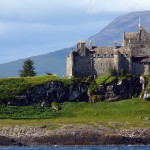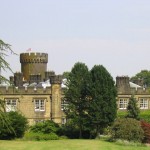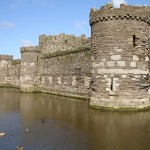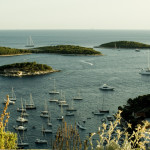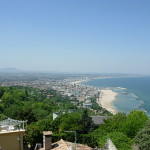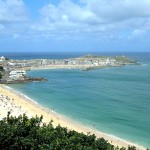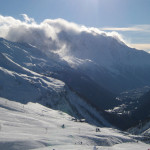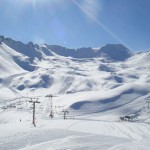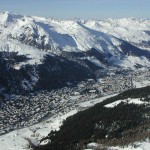Exploring Ronda in Andalucia | Spain
Ronda is one of Andalucia’s oldest and most beautiful cities. Dramatically positioned high up on a rocky outcrop, Ronda is surrounded by majestic mountain scenery but it is still surprisingly easy to find.
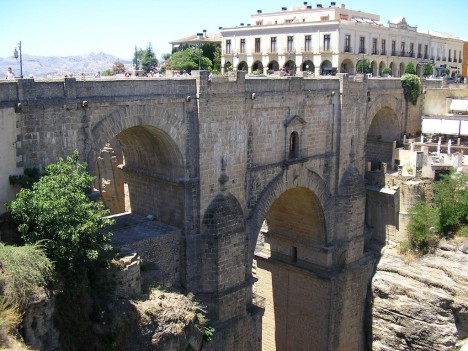
Photo licensed under the Creative Commons, created by Nigel’s Europe
Most visitors find their way up the winding Ronda road from the town of San Pedro de Alcantara just outside Marbella. From San Pedro take the A397 north for approximately 47 km or one hour and you will arrive in the heart of Ronda. It’s an incredible drive through gorgeous scenery but the road does twist and turn quite a lot. It’s a favourite with motorcyclists so be prepared to be overtaken on your way up and down again.
If you’re driving to Ronda directly from your Malaga car hire collection point, then you may prefer to take the straighter A357 and then A367 via Cartama, Ardales, Cuevas del Becerro. It’s a bit further at 100 km or one and half hours but the scenery is still great! Once you get to Ronda, there is plenty of parking with well signed and reasonably priced public car parks throughout the city.
A third option is to take the train. There is one train per day that runs between Malaga airport and Ronda but the line between San Roque Estacion and Ronda is far more scenic. It stops in a couple of pretty villages on the way and you will really get a feel for authentic Spanish countryside. If you’re lucky, you’ll also see the storks nesting on top of the electricity pylons on your way up! There are four trains each day in each direction and the fares are very reasonable.
Ronda dominates the landscape around it and hence was very strategically important to the Moors who survived here until the Christians overcame them in 1485. You will see a lot of Moorish and Arabic influences in the architecture in the centre. The city is located either side of a 100 metre deep gorge, El Tajo. The New Bridge or Puente Nuevo, which dates back to the 18th Century, spans El Tajo and joins together the older southern side of the town with the “newer” part.
In the southern side of Ronda you will find some of the most interesting tourist attractions such as the Palacio Mondragon with its typical Moorish mosaics and plasterwork, Minaret San Sebastian (the remains of a 14th century mosque) and the very impressive Ayuntamiento or town hall with its arcaded facade and Mudéjar ceiling. There is even a Catholic church, Santa María la Mayor, where you can see the minaret and prayer niche which have survived from its previous use as a mosque back in the 13th century.
Whatever your principles, a visit to the bullring is highly recommended. It is thought that Ronda’s Plaza de Toros is the world’s oldest bullring and the spiritual home of bullfighting. The first bullfight is meant to have taken place in 1785. The bullring is a very elegant construction with Tuscan columns forming the two storey seating galleries. The bullfighting museum within explains the cultural history of Spain’s controversial sport or artform (depending on which side of the coin your opinions fall) and includes a tour of the bullring itself and the Royal Harness and Livery collection. Several of the ornate and colourful bullfighting costumes are on display together with an antique fire-arms collection. Next to the bullring is the School of Equestrianism where you can watch the training of their beautiful thoroughbred horses and riders.
View Exploring Ronda in Andalucia Spain in a larger map






